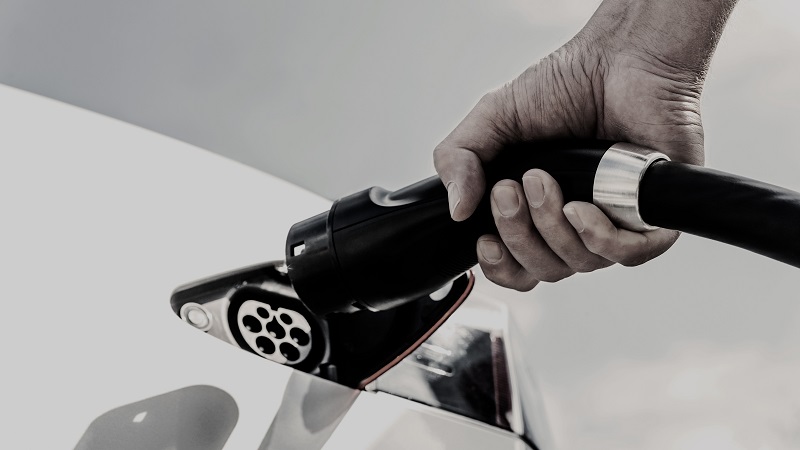Lack of EV charging facilities and high charging costs at Bangkok condominiums are a major deterrent to mass EV adoption
A lack of number of charging points and high electricity charges are barriers to buying a Battery Electric Vehicle (BEV) for people who live in condominiums or high-rise buildings in the Bangkok Metropolitan Region (BMR) (*1) , according to recent research in June 2022 by ABeam Consulting Thailand.
ABeam Consulting found that only about 3% of condominium projects(*2) in the BMR provide access to EV charging facilities. Additionally, as many as 74% of condominiums with EV charging points only have facilities to charge 1 or 2 vehicles simultaneously. In total, there are just around 400 spaces available to charge BEVs or plug-in electric vehicles.
Currently, condominiums employ a variety of pricing models, with time-based pricing (64%) the most common, followed by paying for electricity consumed (31%). Just 1% of buildings use fixed price charging which is not dependent on time spent or electricity consumed, and 4% offer free EV charging.

Often, charging BEVs at condominiums is not cheap for residents - the cost at over 50% of projects that charge by electricity consumed is THB 10/kWh, which is more than double the maximum tariff from the Metropolitan Electricity Authority (MEA) of THB 4.7/kWh. These higher rates wipe out much, if not all, of the potential savings owners can typically expect to benefit from by owning a BEV as they become no cheaper to run when compared to fuel-efficient ICE cars, especially hybrids.
The research found that 90% of condominiums are equipped with 22kW chargers whose potential is currently not fully realized due to BEV technology constraints, as the majority of BEVs do not have onboard chargers that support AC charging above 7kW. Typically, 22 kW EV chargers cost about 20% more to buy than 7kW chargers.
Around Asia, governments are addressing the changing EV landscape by implementing new regulations to accommodate growth. In Singapore. Eight Housing and Development Board (HBD) towns accommodating 20% of the country’s population will need to have 3-12 EV charging outlets per building by 2025, which should add up to 12,000 EV charging outlets, and this will be rolled out to all HBD towns by 2030. The government also offers up to 50% funding for all smart chargers. The country also plans to introduce new laws to ensure that buildings have enough electricity capacity for 15% of parking spaces to be equipped with 7.4kW charging points, and that at least 1% of parking places are equipped with EV chargers.
Cities in mainland China have already introduced new building laws to ensure there are sufficient EV charging points, while HK is now supporting an extensive upgrade of existing buildings by funding up to USD 4,000 per parking space to support the installation of EV charging-enabling infrastructure for 140,000 parking spaces by 2028 at a total cost of USD 450m.

A 2021 survey conducted by ABeam Consulting Thailand on consumer interest in buying an EV found that the key concerns for prospective EV owners were long charging times (50%), home charging installation costs (40%) and problems faced when installing home charging points (20%).
“The current situation creates a significant obstacle for the Thai Government to reach ambitious EV adoption targets and for car manufacturers aiming to encourage drivers to switch to BEVs as multi-story buildings and apartments account for more than a third of all registered units within the BMR. To ensure EV ownership accelerates in Thailand the charging infrastructure in public and private spaces needs to catch up,” said Mr. Jonathan Vargas Ruiz, Head of ASEAN Automotive Strategy at ABeam Consulting (Thailand) Ltd.
“For future-proof and sustained growth, Thailand should implement regulations to require new buildings to install EV chargers and ensure the appropriate electrical infrastructure is in place to ensure EV growth continues as expected. Home charging is usually the most common charging practice for owners of BEVs, and it’s important that people who consider buying a BEV will not have problems with it,” added Mr. Jonathan Vargas Ruiz.
To find out how ABeam Consulting Thailand can help identify opportunities for EV expansion, please contact contactthailand@abeam.com.
(*1): Bangkok Metropolitan Region is comprised of Bangkok metropolis, Nakhon Pathom, Pathum Thani, Nonthaburi, Samut Prakan and Samut Sakhon
(*2): One project may include more than one building (tower)
About ABeam Consulting (Thailand) Ltd.
ABeam Consulting (Thailand) Ltd. is a subsidiary of ABeam Consulting Ltd. – headquartered in Tokyo having 6,900 people serve clients throughout Asia, the Americas and Europe providing consulting services in Thailand since 2005, ABeam Consulting (Thailand) has more than 400 professionals serving clients in Thailand with expertise in business and digital transformation services that create the future together with corporations and other organizations. As a creative partner leading the way reliably through change, we contribute to industrial and societal change.
Please contact us at contactthailand@abeam.com or visit https://www.abeam.com/th/en for more details.


